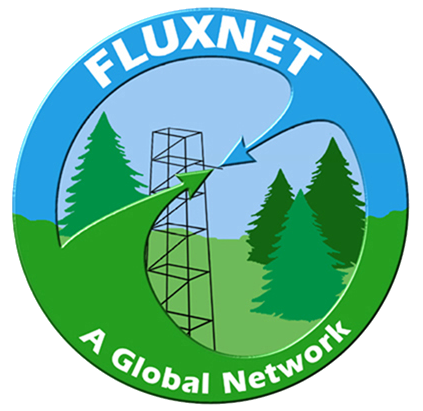After last year’s successful virtual meeting, Ameriflux annual meeting 2021 will be held remotely under the theme: ‘Reflect | Connect: AmeriFlux in 2021’. It is scheduled on September 20-22, 2021. The sessions will focus on water fluxes, natural climate solutions, and other open science questions, while many breakout rooms will be organized to discuss different raising topics in flux and science communities. As part of the meeting, FLUXNET-ECN are organizing two events for early careers and whoever would like to attend: a career mentor panel on Day 1 and Beyond The Professoriate workshop on Day 2. Attendance at both events is free and sponsored by Ameriflux Management Project. In order to attend the whole Ameriflux Annual Meeting, registration could be done through the following link by September 17. This blog gives more details about each of the events, and if you have more questions please email FLUXNET-ECN organizers at [email protected].
Career Mentor Panel – Monday September 20th at 12:30-1:30 PT
The panel will consist of 6 experienced panelists from different career paths related to the flux community who will share about experience in this field within and outside academia. The panel will include breakout rooms where participants can switch between panelists and ask them questions and benefit from their experience. The panel will be on Monday September 20th at 12:30-1:30 PT, and registration could be done via this link. Below are the panelists’ biographies.
Dr. George Burba, Science and Strategy Fellow at Li-COR Biosciences
Dr. Burba is a LI-COR Science & Strategy Fellow, Global Fellow at Daugherty Water for Food Institute, Senior Member of the National Academy of Inventors, and a Graduate Adju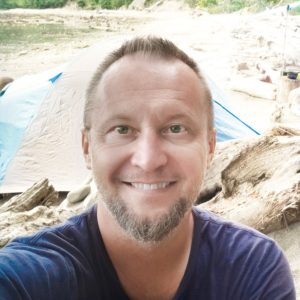 nct Professor at the University of Nebraska. He is a bio-atmospheric scientist and book author, with books on the curricula in 50+ universities, and in libraries across the world including Oxford, Stanford, Princeton, Yale, Cambridge, Cornell, Duke, MIT, Caltech, Dartmouth, Imp College London, Karlsruhe, Max Planck, and papers cited in IPCC and FAO Reports, Nature, Science, etc. He holds 12 patents granted in the US and internationally in 40+ countries on successfully commercialized technology, devices, and methods.
nct Professor at the University of Nebraska. He is a bio-atmospheric scientist and book author, with books on the curricula in 50+ universities, and in libraries across the world including Oxford, Stanford, Princeton, Yale, Cambridge, Cornell, Duke, MIT, Caltech, Dartmouth, Imp College London, Karlsruhe, Max Planck, and papers cited in IPCC and FAO Reports, Nature, Science, etc. He holds 12 patents granted in the US and internationally in 40+ countries on successfully commercialized technology, devices, and methods.
Dr. Burba has taught over 200 courses, seminars, and invited lectures, including those at numerous universities, AmeriFlux, Argonne, AsiaFlux, BASC, Battelle, EPA, ICOS, InGOS, IITM, NEON, OzFlux, WMO, etc., and served on advisory boards, review panels, steering, grant, search and organizing committees etc. at over 40 organizations and groups including IPCC, AmeriFlux, DWFI, Elsevier, EU Commission, ICOS, InGOS, NCSE, NEON, FFAR, Israel Ministry of Science, Netherlands Organisation for Scientific Research, WMO, etc.
Dr. Christia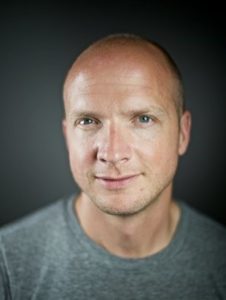 n Frankenberg, Research Scientist at NASA-JPL, Professor at Caltech
n Frankenberg, Research Scientist at NASA-JPL, Professor at Caltech
Dr. Frankenberg is a Professor of Environmental Science and Engineering at Caltech and holds a joint appointment with NASA’s Jet Propulsion laboratory in Pasadena, California. His main research interests are broadly focused on remote sensing and the global carbon cycle. This not only includes developing new strategies to measure atmospheric trace gases or vegetation function from space but also model development from the leaf to the canopy scale to best link remotely observed properties to ecosystem functioning. Currently, a lot of the group research is focused on accurately measuring atmospheric methane from the ground and in space, building up a new Land Surface model component in a full Climate model as well as measuring plants glow, namely Solar Induced Chlorophyll Fluorescence at the leaf, Fluxtower, regional and global scale.
Dr. Natasha McBean, Assistant Professor at Indiana University
Dr. MacBean is an Assistant Professor in the Department of Geography at Indiana University. Her research addresses policy-relevant scientific questions related to the terrestrial biosphere’s response to climate change, rising CO2, and human activity (e.g. land use and land cover change). Her work spans scales from ecosystems to the globe. One of her current research interests is on better understanding and predicting interactions between vegetation, carbon, and water cycles in dryland ecosystems.
Prior to joining 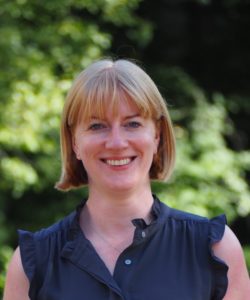 Indiana University, Natasha was a Postdoctoral Research Scientist at the Laboratoire des Sciences du Climat et de l’Environnement (LSCE) in Paris, France, and a Research Associate in the School of Natural Resources and the Environment at the University of Arizona. She completed her Bachelor’s and Master’s degrees in Earth Sciences at the University of Oxford, before earning her PhD in Land Surface Modeling and Remote Sensing in the Department of Geography at University College London.
Indiana University, Natasha was a Postdoctoral Research Scientist at the Laboratoire des Sciences du Climat et de l’Environnement (LSCE) in Paris, France, and a Research Associate in the School of Natural Resources and the Environment at the University of Arizona. She completed her Bachelor’s and Master’s degrees in Earth Sciences at the University of Oxford, before earning her PhD in Land Surface Modeling and Remote Sensing in the Department of Geography at University College London.
Natasha is a member of the AIMES (Analysis, Integration and Modeling of Earth Systems) Scientific Steering Committee and the AIMES Land Data Assimilation Working Group. AIMES is one of 20 global research projects of Future Earth. She is an Associate Editor for AGU’s Journal of Advances in Modeling Earth Systems. Natasha has served or is serving on numerous committees and working groups, including the Ameriflux Management Project Data Advisory Committee, the NASA CEOS Land Product Validation Biomass Focus Area Subgroup, and the NASA Surface Biology and Geology (SBG) “Designated Observable” Modeling Working Group.
Dr. Stefan Metzger, Principal Scientist at NEON
Dr. Metzger is cu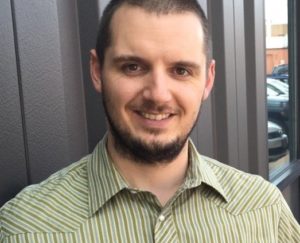 rrently a Principal Research Scientist at NEON after joining it as a postdoc in 2011 and a staff scientist in 2014, and an Adjunct Assistant Professor at the University of Wisconsin (Madison, WI, US). Dr. Metzger earned a PhD in “Applicability of weight-shift microlight aircraft for measuring the turbulent exchange above complex terrain from Bayreuth University and Karlsruhe Institute of Technology in Germany. He followed a Chinese language and research culture training at Beijing Foreign Studies University in 2009, and received a diploma (equivalent M.Sc.) in Geoecology with a focusing on “Footprint climatology, land use contribution and quality assessment of Tibetan Plateau flux measurement sites” from Bayreuth University in 2007.
rrently a Principal Research Scientist at NEON after joining it as a postdoc in 2011 and a staff scientist in 2014, and an Adjunct Assistant Professor at the University of Wisconsin (Madison, WI, US). Dr. Metzger earned a PhD in “Applicability of weight-shift microlight aircraft for measuring the turbulent exchange above complex terrain from Bayreuth University and Karlsruhe Institute of Technology in Germany. He followed a Chinese language and research culture training at Beijing Foreign Studies University in 2009, and received a diploma (equivalent M.Sc.) in Geoecology with a focusing on “Footprint climatology, land use contribution and quality assessment of Tibetan Plateau flux measurement sites” from Bayreuth University in 2007.
Dr. Gilberto Pastorello, Research Scientist at LBNL
Dr. Past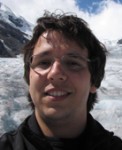 orello is a Research Scientist at the Lawrence Berkeley National Laboratory and his research is centered around data: data & metadata, data quality, data uncertainty, and a lot of data systems (really, a lot of building, breaking, and re-building data systems!). Most of his work is for the data teams of the AmeriFlux and FLUXNET networks and the NGEE-Tropics project, which require learning about Earth and Environmental Sciences, including bits about Ecology, Plant Physiology, Micrometeorology, and models for all of these, as well as–and you may have guessed this part is a key one for me–Eddy Covariance and carbon, water, and energy fluxes. His approach is to try to contribute by making my Data Science background useful in advancing them. He started his research career studying database and information systems in graduate school, and incrementally, through Postdoc positions and now as a Research Scientist, trying to make this knowledge more and more applied.
orello is a Research Scientist at the Lawrence Berkeley National Laboratory and his research is centered around data: data & metadata, data quality, data uncertainty, and a lot of data systems (really, a lot of building, breaking, and re-building data systems!). Most of his work is for the data teams of the AmeriFlux and FLUXNET networks and the NGEE-Tropics project, which require learning about Earth and Environmental Sciences, including bits about Ecology, Plant Physiology, Micrometeorology, and models for all of these, as well as–and you may have guessed this part is a key one for me–Eddy Covariance and carbon, water, and energy fluxes. His approach is to try to contribute by making my Data Science background useful in advancing them. He started his research career studying database and information systems in graduate school, and incrementally, through Postdoc positions and now as a Research Scientist, trying to make this knowledge more and more applied.
Dr. Russel L. Scott, Research Scientist at USDA-ARS
Dr. Scott has b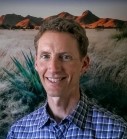 een a research hydrologist for the USDA-ARS in Tucson since 2000. He has a Ph.D. in Hydrology and Water Resources at the University of Arizona and an M.S. in Civil and Environmental Engineering (Hydrology focus) from the Massachusetts Institute of Technology. He has been doing riparian and dryland hydrological and ecological research since 1997, focusing primarily on issues of vegetation water use, plant hydraulic redistribution, evapotranspiration partitioning, and semiarid ecosystem water and carbon balance. He is the author on more than 150 scientific, peer-reviewed, publications, and he serves as an associate editor for Journal of Geophysical Research – Biogeosciences and for the editorial board of the journal Agricultural and Forest Meteorology. He also served as a Co-Chair for the Science Steering Committee of AmeriFlux.
een a research hydrologist for the USDA-ARS in Tucson since 2000. He has a Ph.D. in Hydrology and Water Resources at the University of Arizona and an M.S. in Civil and Environmental Engineering (Hydrology focus) from the Massachusetts Institute of Technology. He has been doing riparian and dryland hydrological and ecological research since 1997, focusing primarily on issues of vegetation water use, plant hydraulic redistribution, evapotranspiration partitioning, and semiarid ecosystem water and carbon balance. He is the author on more than 150 scientific, peer-reviewed, publications, and he serves as an associate editor for Journal of Geophysical Research – Biogeosciences and for the editorial board of the journal Agricultural and Forest Meteorology. He also served as a Co-Chair for the Science Steering Committee of AmeriFlux.
Beyond The Professoriate Workshop – Tuesday September 21st at 12:30-2:00 PT
The workshop will be delivered by Dr. Maren Wood and is intended to help early careers understand their abilities and interests outside dissertation, and identify how to move through a career transition with purpose and strategy. Registration is done through this link by September 14th. During the workshop participants will learn how to analyze job advertisements, identify competences and skills they have, assess job ads and social media accounts to know more about the company, and develop their action plan for additional self-development. Participants will be also provided a workbook as the w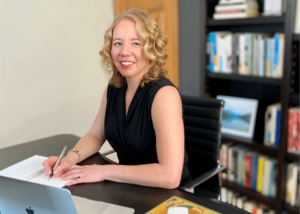 orkshop material. More details about the workshop could be found on Beyond The Professoriate website.
orkshop material. More details about the workshop could be found on Beyond The Professoriate website.
Dr. Maren Wood, PhD is the CEO and founder of Beyond the Professoriate. She is a career education specialist who works with graduate students and PhDs on facing challenges when looking for jobs beyond academia. She has already more than seven years of experience in mentoring PhDs in many fields including STEM discipline. She has spoken at different campuses in Canada, the United States, and the United Kingdom.
